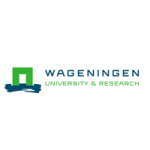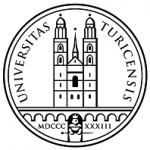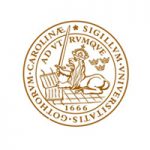项目介绍
Function
We are seeking four highly motivated PhD candidates to join our team as part of the interdisciplinary Oil-Clips program (OIL-CLiPS – WUR), funded by Wageningen UR and its partners. The Oil-Clips program aims at unravelling the causes of disease outbreaks in oil palm plantations, focusing on Basal Stem Rot in Indonesia and Bud Rot in Colombia and how these are affected by changes in climate, farmer practices, and socio-economic changes. These disease outbreaks are seen as an interplay between host, pathogen, human action, social structure, and environment. The recruited PhD candidates will investigate these relations by applying concepts and methods from at least two disciplines.
This PhD project researches the political ecology of oil palm. You will study the dynamics of social relationships, human actions, and human-pathogen-environment interactions that have an impact on Ganoderma disease outbreak and management in oil palm regions in Indonesia.
Oil palm disease control is overly complex given the large diversity among growers, in terms of access to resources and position in the supply chain. Divergent narratives exist regarding disease control, often influenced by conflicting visions on sustainability and equity. In case of Ganoderma caused Basal Stem Rot disease in Indonesia, smallholder organizations recognize the threat that the disease cannot be controlled and will increase the vulnerability of smallholders. However, we lack knowledge on why smallholders find it so difficult to respond. To address this research problem, this project connects the issue of disease control with recent knowledge on how land tenure insecurity, limited access to resources and agronomic knowledge, and unguaranteed access to markets conditions smallholder’s management practices. It also connects it with the wider contentious discussion on oil palm expansion leading to deforestation, loss of land rights and livelihood resources, and increased dependency on one cash crop. Of particular interest are the implications of new sustainability policies.
As PhD researcher you will particularly explore:
The PhD candidate will develop a research proposal that will focus on one or more of the following issues: i) Shifts in government responses to disease outbreaks and farmers’ (collective) memories on disease incidence, remedies, and impact on livelihoods.
ii) How social differentiation, resource distribution, and livelihood strategies condition oil palm cultivation and shape disease outbreak and management options.
iii) The narratives that have developed around plant diseases in policy documents, knowledge exchange events, media, and local knowledge and how has this influenced storytelling about effectiveness of proposed treatments.
iv) The institutional landscape, i.e. how institutions (as dynamic structures of rules) such as state regulations, sustainability certification schemes, and local cultural arrangements, shape disease related actions of growers and other actors. The PhD candidate will develop an approach that denaturalizes the disease and, instead, contextualizes the disease and its management by exploring social and political dynamics.
Research locations are oil palm growing regions in Indonesia and Wageningen University in the Netherlands (total stay in the Netherlands of about 18 months in different periods). You will focus on Indonesia but the work includes collaborative data collection efforts in Colombia, facilitating a comparative analysis of disease prevalence across continents.
Function Requirements
We are looking for an analytical thinker with a problem solving orientation. The candidate has an interest in the social dynamics of oil palm production, sustainability discourses, interdisciplinary work and professional proficiency in Bahasa Indonesia. Specially, the candidate:
- a master’s degree in anthropology, sociology, social geography, political science, or a related discipline, with strong scores at the bachelor and master level;
- knowledge of theories on political ecology, critical agrarian studies, or agrarian political economy;
- experience with qualitative research methods. Some knowledge of quantitative methods is a bonus;
- willingness to carry out field work and travel for longer periods;
- motivation to study the materiality of disease management practices and the interaction with social practices;
- skills and commitment to work in an interdisciplinary research programme and motivation to contribute to the overall programme;
- demonstrable academic writing skills;
- demonstrable communicative skills, ability to establish and maintain good working relations with different partners (other researchers, technical staff, farmer associations, smallholder farmers, companies, and so on), and to work in culturally diverse contexts;
- field experience in Indonesia and proficiency in Bahasa Indonesia.
For this position your command of the English language is expected to be at C1 level. Sometimes it is necessary to submit an internationally recognised Certificate of Proficiency in the English Language. More information can be found here.
Contactinformation
For more information about this position, please contact Kees Jansen, associate professor, +31 (0)317-484097, kees.jansen@wur.nl
For more information about the procedure, please contact Noorien Abbas, corporate recruiter recruitment.ssg@wur.nl.
相关项目推荐
KD博士实时收录全球顶尖院校的博士项目,总有一个项目等着你!





